
Eagle Feathers #220 – The Yule Train
By Bob (Monty) Doherty
One day in the winter of 1842, a train rolled through this city. Among its passengers was a young English author who, shortly after his four-month visit to America, would change Christmas forever. The coach or omnibus, as they were often called, was the first American train he ever boarded. It was the Boston and Lowell, the first major railroad built in New England.
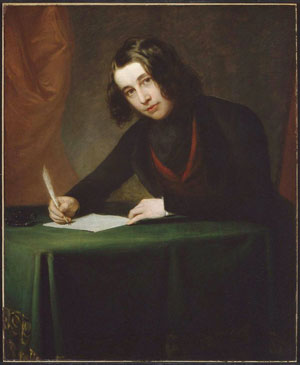
After his country tour, the young Charles Dickens reflected back and said his most enjoyable time was his slow train excursion to and from Lowell. It was the year Somerville broke away from Charlestown. While on the ride, he took copious notes on everything he saw. His first stop in Somerville was at Washington Street and Tufts Street where he saw Mclean Hospital atop Cobble Hill and a factory that manufactured railroad spikes, doornails and knockers. These and other observations on and off the train would be published in his novel, American Notes.
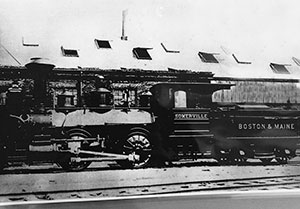
The train brought the author past the snow-covered pastures of what is now the base of Prospect Hill where General George Washington and his infant army spent their first Christmas. It also passed Central Hill where hero Captain Nathan Hale spent his last Christmas. Next was Winter Hill where Hessian/German prisoners first celebrated Christmas bringing the tradition of Christmas trees to America.
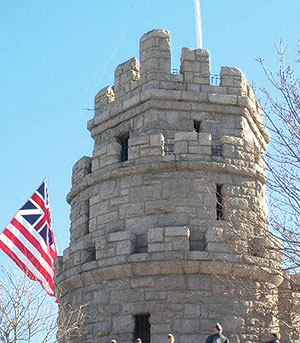
Dickens saw a land that under the puritanical law of Governor Bellingham, the successor of John Winthrop, banned the Christmas holiday citing “superstitious festivals held to the dishonor of god.” This ban was in place for 22 years from 1659 to 1681.
He chronicled passengers and their stories while huddled around potbelly stoves for warmth. The thick, grey smoke generated by the heaters created what he described as eerie, ghost-like images throughout the train.
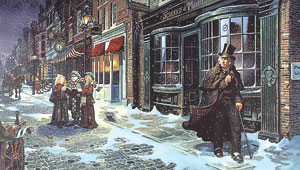
In Lowell, he saw the arduous plight of many mill workers. He had no trouble relating to them because he had been forced to work in a London blacking mill from the age of nine to eleven to help free his parents from debtor’s prison. Between the thought of ghosts, working children, door spikes and knockers, and the banning of Christmas, his train ride through Somerville may have given Dickens food for thought.
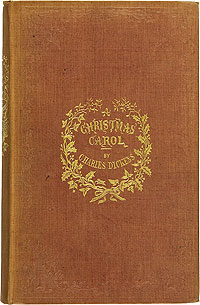
The next year he published A Christmas Carol, which was wildly successful and critically acclaimed. It incorporated the themes of winter ghosts, door spikes and the social injustices of industry. Many motion pictures and countless other adaptations have been based on his treasured tale which created the phrase … Merry Christmas!
















Reader Comments